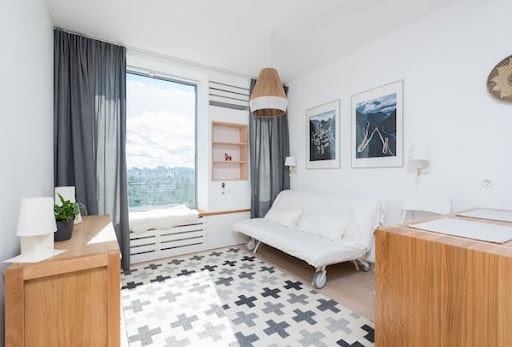6 Tips for Finding Short-Term Rental
In an ideal world, moving houses should be able to match up well. An existing lease agreement should end the same day the new one begins. At this point, a renter should already have a brand new home for the day the sale of their current home closes. But in the real world, however, things have a way of getting a little more complicated for finding short-term rental. As such, it’s not uncommon to have a few weeks or months to spare between moving dates. This means that you’ll have to find a place you can stay in the interim. The good news is that there are options when it comes to temporary housing. One of the options would be finding a place to stay temporarily. But how?
Table of Contents
How to Find Short-Term Rentals
Rental property investments are very common today. A short-term lease enables you to live in a rental space temporarily. You can then leave whenever it’s convenient. If you’re not sure how to find a short-term rental, we have some tips to make your search easy.
If the process seems difficult or you don’t have time, experts from techvestor stated that opting for a property management company would be the best idea. These companies will help you find a temporary home that suits you. Property management companies also take care of the cost structure, reporting capabilities, and communication with renters on behalf of property owners.

1. Keep Your Options Open
Short-term rentals can either be abundant or difficult to find. This is, however, based on the area you’re interested in or the time of the year. In a popular destination city during summer, for instance, the demand for housing and the prices can be higher.
That’s why you must be able to compromise. Can you, for instance, live in a nearby neighborhood for a discount? How about leaving your pet at home with the caretaker?
In a college town where students leave during summer, supply would be plentiful. As such, you can fend off offers from frantic tenants and panicked landlords. So take time to negotiate and find a great place at an affordable price.
If you’re renting quickly due to an unanticipated life situation, you can take the first available subset. You can then re-group later and figure out your next steps.
2. Use a Broker for Finding Short-Term Rental
Working with an apartment broker is the easiest way to gather a lot of options in one place. These brokers can tell you the kind of temporary housing options that are available in your preferred location. You can then break down your best choices based on the location and the available amenities.
Note that apartment brokers are paid for by the property managers. So there’s no cost to you for using their services.
Keep in mind that a lot of brokers are looking at short-term rental investments and corporate housing options. They won’t necessarily scan vacation rentals or extended stays in hotels. So in case you’re interested in the latter, you’ll have to do the digging by yourself.
3. Be Flexible in Your Search
When moving somewhere for the long term, it makes sense to prioritize aspects like location and available amenities. But if you just need a rental property to stay in for a little while, you may not mind some compromises in your search.
If you fail to find a good fit in your search location, expand the search to the neighborhoods. For as long as you can get wherever you want every day, some short-term inconveniences shouldn’t be a problem.
When it comes to amenities, be sure to prioritize safety and cleanliness. Don’t worry about issues such as upgraded appliances and amenities. In any case, you won’t be staying for a long time.
4. Utilize Your Network
Utilizing your network is one of the simplest ways of finding short-term rental options. Ask your friends, family, and co-workers if they know of any rental property investment owners looking to lease a room.
You may, for instance, be relocating for work and want a short-term rental before settling into a permanent place. It could also be that you want to relocate for some weeks and need a temporary place to stay.
You can also look for reviews on passive income real estate and the location. This will ensure that you end up with a rental property investment that’s up to par.
It’s important to utilize every available resource when looking for a short-term rental. If you find a unit that provides short-term leases, avoid rental scams and view the unit before signing. Then closely review the lease agreement such that you’re on the same page with the new landlord.
5. Know the Local Regulations
Rental property investments may be available in your preferred location, but that’s not to mean that they are allowed. The homeowners’ associations can outlaw some short-term rentals. This is meant to ensure that the neighborhood and rental property maintains the desired conditions.
In New York, for instance, a lot of corporate buildings have some buildings that don’t allow subletting for a period of less than a year. At least not without the board approval of the renter. Additionally, whole-apartment rentals with a period of less than 30 days are considered illegal.
Renters sometimes sublet their apartments without permission from their landlord. Sometimes they do it by going against the landlord’s rules on subletting. If you’re interested in a sublet, request the renter for proof of permission to sublet. You can also talk directly to the landlord.
This will ensure that subletting the unit doesn’t put you, the renter, or the landlord in jeopardy. It would be best to avoid subletting options where the renter doesn’t have permission to do so.
6. Consider Your Period of Stay
This is a huge determining factor when looking for short-term rentals. Your best choices will differ based on whether it’s a matter of weeks or you’ll be staying for months.
In terms of budgeting, an option that seemed appealing for a short-term stay may be too expensive for a longer stay. If you don’t know the length of your stay, you’ll have to be sure that the option you settle for has flexibility in letting you extend your stay.
Conclusion: Finding Short-Term Rental
Finding a short-term rental can take a little bit of work. So you must ensure that you start your search early. You may not be moving just yet. However, it will be in your best interest to find the available information on your desired move-in period ahead of time.
Be sure to expand your search beyond the internet by calling leasing managers for inquiries. That’s because online sources only have basic information most of the time. The real deal, pricing, and any other information can only be learned by speaking to someone at the property. With different types of property management, however, you should be able to find a great fit.
Dan has hands-on experience in writing on cybersecurity and digital marketing since 2007. He has been building teams and coaching others to foster innovation and solve real-time problems. Dan also enjoys photography and traveling.











I just read your amazing article about finding short-stay rentals. Thank you for sharing useful information.